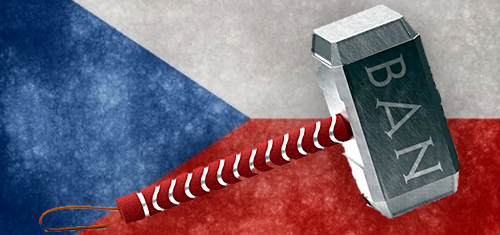 Councilors in the city of Prague have voted to ban gaming clubs from the capital of the Czech Republic.
Councilors in the city of Prague have voted to ban gaming clubs from the capital of the Czech Republic.
On Thursday, the Prague City Assembly surprised onlookers by voting to ban gaming clubs offering video lottery terminals (VLT). Prague’s mayor, Adriana Krnáčová, had originally proposed amending the city’s gambling laws to achieve a reduction in the number of VLT venues but councilors got a little carried away and decided to ban the lot.
The ban isn’t quite as absolute as it sounds, as around 100 officially designated ‘casinos’ will be allowed to carry on business as usual. But 212 smaller ‘gaming clubs’ are facing the axe, many of them on Jan. 1, 2016 when the measure goes into effect. Other affected venues will close within the next year or so as their licenses expire and are not renewed.
Ondřej Mirovský, the deputy mayor of Prague 7 district, said the measure was intended to get rid of the kind of “dirty venues” that had proliferated in recent years. In proposing the original reduction in the number of clubs, Mayor Krnáčová had linked the venues with “a number of sociological and pathological phenomena.”
Some districts of the city, like Prague 4, have opted to rid their streets of all gaming venues, regardless of their official designation. Similar purges have already been conducted outside the capital in Brno, České Budějovice, Zlín city center, and Kroměřiíž.
The gaming industry lobby isn’t waving the white flag just yet. Association of Gaming Operators exec Petr Vrzáň said his group had “no option but to fight such an attack on a legal enterprise.” Vrzáň vowed to lobby the Interior Ministry, the anti-monopoly office and the new leadership at City Hall in order to reverse the Assembly’s rash move.
Vrzáň told Radio Prague that the mayor’s original proposal was “rational, but it was swept aside in a populistic move.” In addition to the number of people who will lose their livelihood, Vrzáň warned that the closures would cost the city treasury around 300m koruna (US $11.8m) per year and would “open the door to illegal gambling and mafia activities.”






